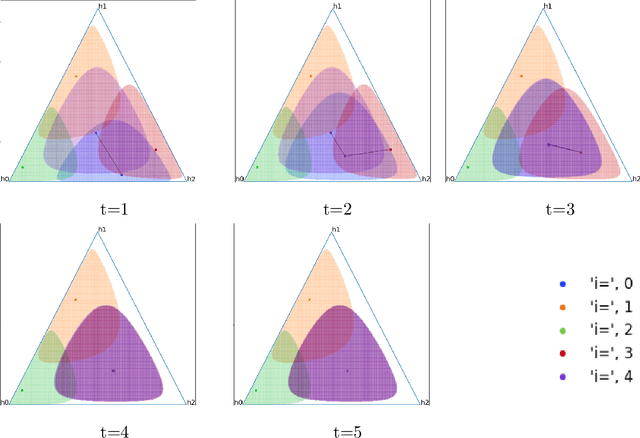Evolution of beliefs in social networks
Paper and Code
May 26, 2022



Evolution of beliefs of a society are a product of interactions between people (horizontal transmission) in the society over generations (vertical transmission). Researchers have studied both horizontal and vertical transmission separately. Extending prior work, we propose a new theoretical framework which allows application of tools from Markov chain theory to the analysis of belief evolution via horizontal and vertical transmission. We analyze three cases: static network, randomly changing network, and homophily-based dynamic network. Whereas the former two assume network structure is independent of beliefs, the latter assumes that people tend to communicate with those who have similar beliefs. We prove under general conditions that both static and randomly changing networks converge to a single set of beliefs among all individuals along with the rate of convergence. We prove that homophily-based network structures do not in general converge to a single set of beliefs shared by all and prove lower bounds on the number of different limiting beliefs as a function of initial beliefs. We conclude by discussing implications for prior theories and directions for future work.
 Add to Chrome
Add to Chrome Add to Firefox
Add to Firefox Add to Edge
Add to Edge